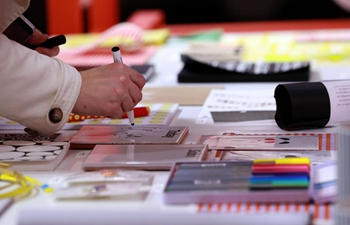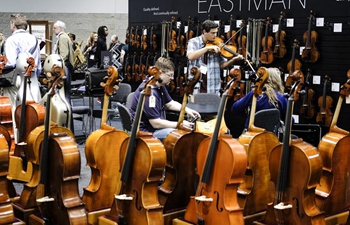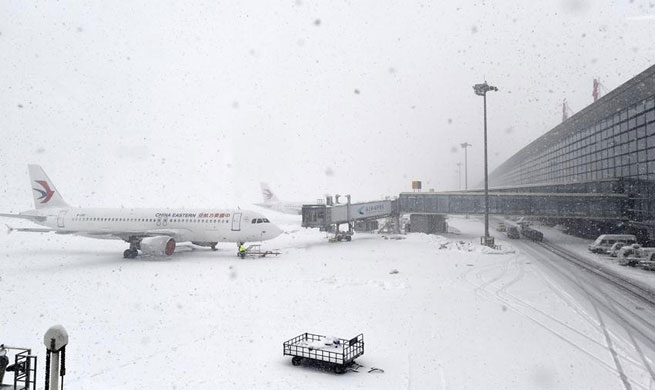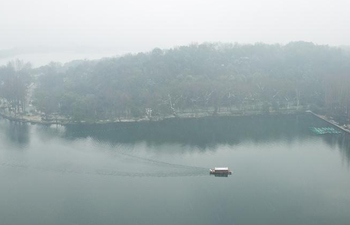BERLIN, Jan. 23 (Xinhua) -- The political fate of German Social Democrats (SPD) leader Martin Schulz became the subject of widespread media speculation on Tuesday as infighting and factional divisions in the party persisted.
Schulz has come under heavy pressure after securing a narrow vote from SPD delegates in favor of joining another "grand coalition" with the Christian Democratic Union (CDU) and Christian Social Union (CSU) at a specially-convened party conference in Bonn. Rather than resolving the issue, the result appears to have since laid bare the controversy over whether the SPD should proceed to the final stage of forming Chancellor Angela Merkel's (CDU) fourth federal cabinet.
Speaking to the newspaper Welt on Tuesday, the designated Thuringian SPD leader Wolfgang Tiefensee urged Schulz not to assume a ministerial post in a new government himself.
"A 180-degree-turn in this question would shatter the credibility of Martin Schulz," Tiefensee said. He hereby referred to a promise made by Schulz in the wake of the SPD's electoral defeat in September to return with his party to the opposition benches of the Federal Parliament (Bundestag).
Schulz only reversed his position of categorically-opposing a legislative alliance with the CDU/CSU when earlier "Jamaica" coalition talks collapsed and German President Frank-Walter Steinmeier made a dramatic appeal to the SPD leader to assume the responsibility of government. Whether Schulz will himself join the cabinet of another "grand coalition" is still unclear.
Before any personal decisions can be reached, the SPD must obtain the approval of its more than 400,000 members to sign a final coalition agreement. Despite the SPD leadership's recent, albeit narrow, backing of finalizing negotiations, some party factions have announced their continued resistance to joining a "grand coalition".
The SPD Youth Organization (Juso), in particular, is vehemently opposed to Schulz' plans. Juso leader Kevin Kuehnert has argued that the similarities between the SPD and the CDU/CSU have been "exhausted" and warned that another five years as junior partner in a Merkel cabinet would significantly damage the appeal of Social Democrats in Germany.
Frederick Cordes, regional Juso leader in North-Rhine Westphalia, went as far as to threaten to recruit to the SPD more critics of a "grand-coalition." On Tuesday, he announced the launch of a "10 euros against the grand coalition" initiative, asking citizens to pay a temporary party membership fee in order to be able to vote against a final coalition agreement.
According to newspaper Frankfurter Allgemeine Zeitung, Cordes' campaign caused outrage among senior SPD figures who described it as amounting to "party-damaging behavior." Using temporary entry into the party as a means to influence the outcome of votes is not compatible with bona-fide engagement in the SPD. Nevertheless, the effect of Cordes' emotional appeal is likely to remain symbolic given the relatively small size of Juso within the wider party membership.
Meanwhile, the CDU and CSU have called on the SPD to resolve its internal issues and speed up the pace of coalition negotiations.
"The citizens are tired of waiting," CDU/CSU parliamentary faction leader Volker Kauder (CDU) told Funke media group on Tuesday.
"Every day that goes on without a new government does not exactly enhance trust in parties and democracy," Kauder added. However, he once again ruled out significant changes to the existing preliminary coalition agreement as demanded in some quarters of the SPD.
"The preliminary coalition agreement is the foundation for a coalition," Kauder said.

















